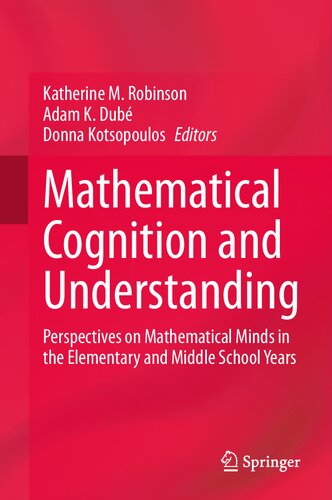

Most ebook files are in PDF format, so you can easily read them using various software such as Foxit Reader or directly on the Google Chrome browser.
Some ebook files are released by publishers in other formats such as .awz, .mobi, .epub, .fb2, etc. You may need to install specific software to read these formats on mobile/PC, such as Calibre.
Please read the tutorial at this link: https://ebookbell.com/faq
We offer FREE conversion to the popular formats you request; however, this may take some time. Therefore, right after payment, please email us, and we will try to provide the service as quickly as possible.
For some exceptional file formats or broken links (if any), please refrain from opening any disputes. Instead, email us first, and we will try to assist within a maximum of 6 hours.
EbookBell Team

4.4
62 reviewsThis book focuses on elementary and middle school children’s understanding of mathematics as well as the cognitive aspects involved in the development of mathematical knowledge, skills, and understanding. Children’s success in and understanding of mathematics stem from factors beyond the mathematics curriculum. Researchers are increasingly becoming aware of the necessity to consider a complex set of variables when accounting for large individual differences in mathematics achievement. These chapters contribute to how both researchers and educators can consider the multidimensionality of skills involved in developing mathematical knowledge in the middle school years as well as to how this knowledge can be used to enhance practices in the mathematics classroom. Topics include the cognitive and spatial skills involved in mathematics knowledge, the role of motivation in mathematics learning, the neurological processes and development of children’s mathematics skills, the development of understanding of arithmetic and fraction concepts, the factors relating to children’s word problem success, and techniques to promote mathematics understanding.
This book and its companion, Mathematical Teaching and Learning, take an interdisciplinary perspective to mathematical learning and development in the elementary and middle school years. The authors and perspectives in this book draw from education, neuroscience, developmental psychology, and cognitive psychology. The book will be relevant to scholars/educators in the field of mathematics education and also those in childhood development and cognition. Each chapter also includes practical tips and implications for parents as well as for educators and researchers.